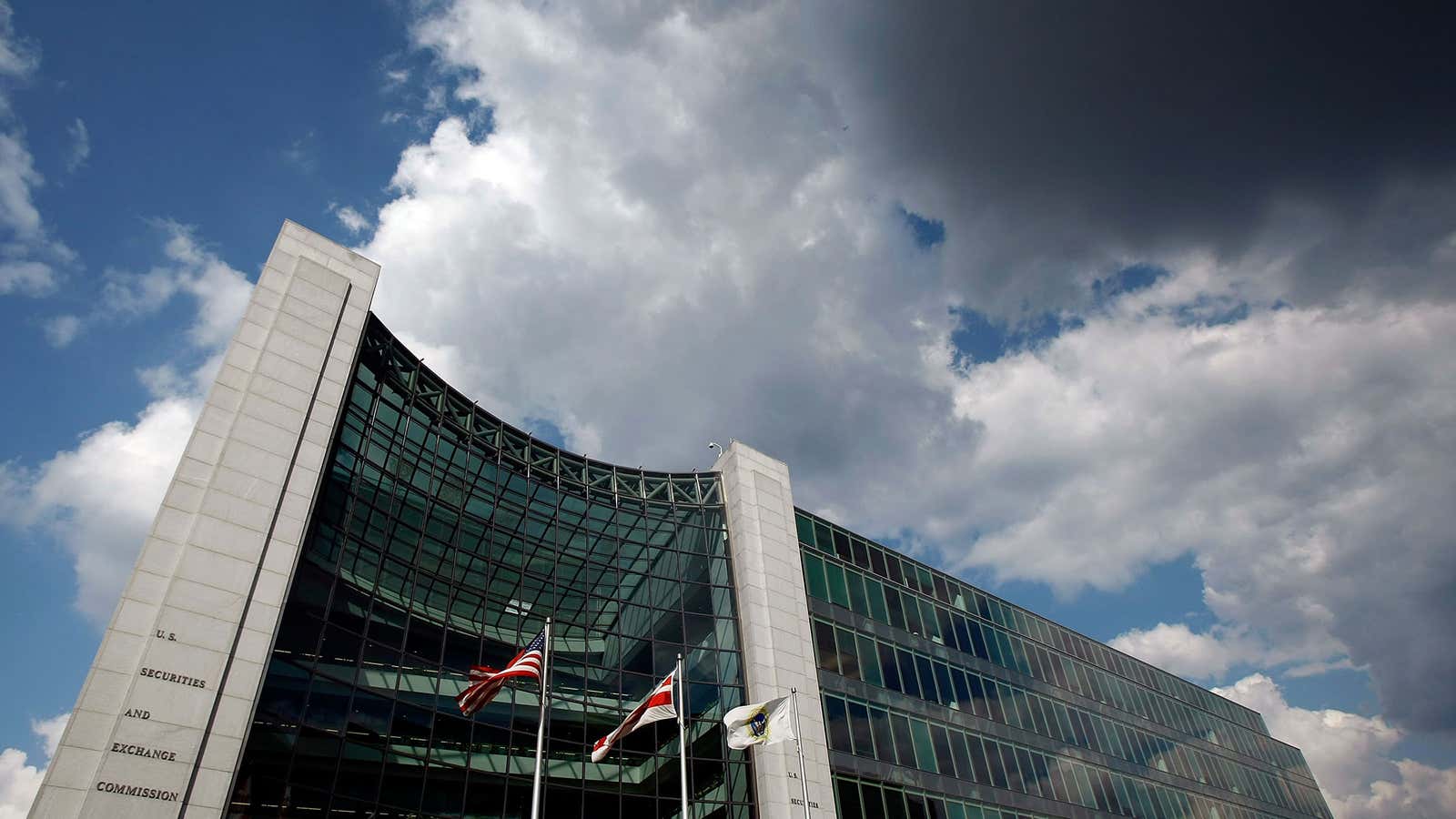The Securities and Exchange Commission (SEC) has taken a new interest in the much-maligned high-frequency trading (HFT) during the last few months. Last year, former high frequency trader Haim Bodek contacted the SEC and described special kinds of trades—”orders”—which allowed HFT firms to cut the line and make trades ahead of others. Bodek’s account has become the rallying cry for regulation of HFT, and the SEC has been moving to eliminate practices that give one market player an unfair advantage over another. It went so far as to fine the New York Stock Exchange (NYSE) $5 million for allowing subscribers of two proprietary data feeds to access market data before non-subscribers. Even most of the SEC’s critics admit that the organization is at last attempting to level the playing field.
But last week a Chicago prop trader blogging anonymously for the TABB Forum (a research community curated by the TABB Group) wrote that public shows of regulation disguise the real truth: the SEC is ineffective at preventing new violations. The trader details a new kind of trade—a “PL Select Order”—which the SEC recently approved, that, he argues, violates all pretense at working towards fair play. The Chicago trader alleges that, with this order type, the NYSE is almost explicitly offering an unfair advantage (registration required) to high-speed traders as opposed to normal traders:
The confusion sets in when you look at the new PL Select order type recently introduced by the NYSE…[T]his is an order that will allow [a trader] to avoid interacting with the most sophisticated orders, and the largest orders, interacting with ONLY small…orders. Yet another way to say it would be that this is an order type will allow HFT’s to…ONLY trade with a small, generally unsophisticated order [and not other HFT’s, which can move as fast and react more quickly]. But you don’t have to take my word for it. In what seems like a fairly unusual move, T Rowe Price has actually written a comment letter to the SEC opposing this order type (!!). At the same time as the SEC is being alerted to potential problems and issues with order types, they are approving an order type that one of the biggest institutional money managers has written a comment letter specifically outlining the detrimental effects this will have on the marketplace, and the ultimate cost born by the very investors the Commission is charged with defending.
Essentially, the trader argues that the new kind of order would allow HFT firms to prey on less mobile investors—which means you, or perhaps the institutional investor who manages your retirement, 401(k) pension plan, or personal assets—by avoiding having to interact with other high-frequency firms that can more swiftly retract or expand their positions.
In the letter the trader mentions above, dated Sept. 4, the investment-management firm T Rowe Price alleges (pdf), “These order types could be misused to gather market color or information unfairly in addition to the trading disadvantages experienced by institutional investors…We believe that this and similar other proposals unnecessarily segment clients to the detriment of long term investors and erode confidence in a fair and orderly marketplace.” However, the SEC approved the new order type a day later, finding the new order type “consistent” with its policies on exchanges. Neither the SEC nor NYSE Euronext immediately responded to requests for comment.
I won’t profess to be a trader. But the mechanics of this order type appear to violate the kind of market fairness the SEC says it is aiming to promote. It allows specialized traders to compete outside the rules that govern the marketplace for most investors, and condones behavior which even bankers have called unfair. I have argued before that dialing back the speed of high frequency trading will be difficult and probably ineffective; and you can hardly blame traders for taking advantage of the most profitable products available to them. Nor do the exchanges have much incentive to work for fair markets; their revenues rely heavily on business from HFT firms, and they have tried to attract these firms by offering new rounds of specialized financial products. So if the SEC does not step up to fight for normal-speed investors, no one will.
